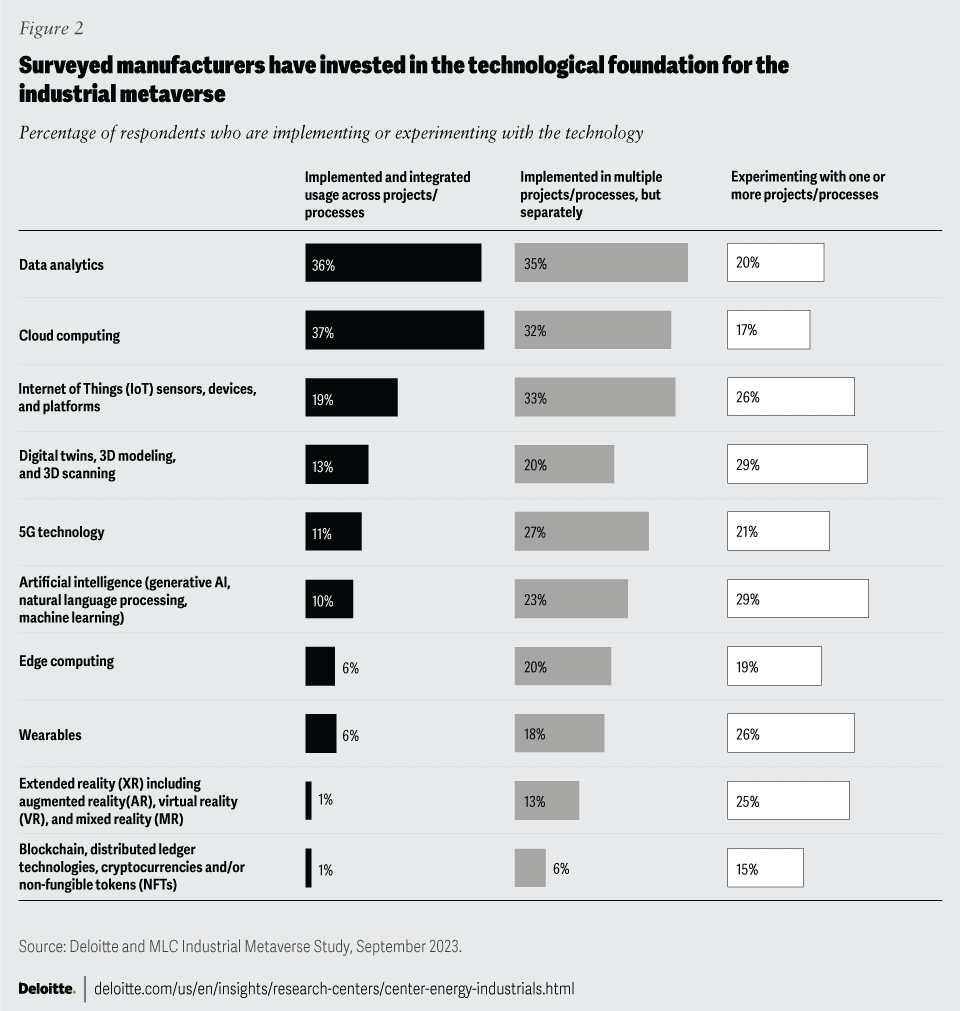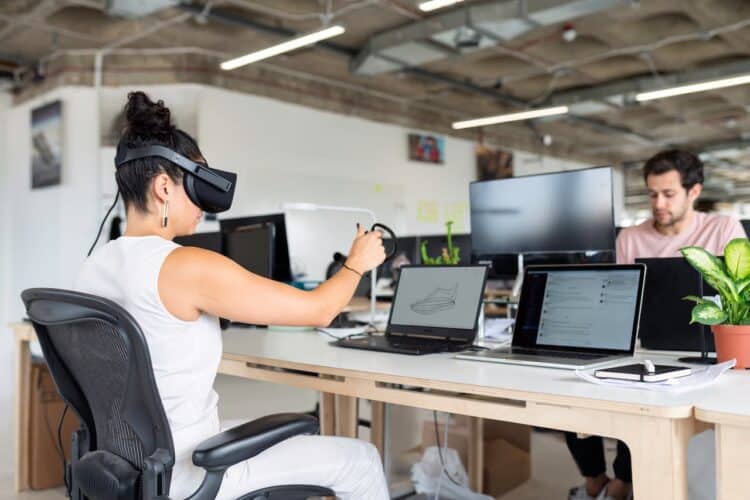The May 2023 Deloitte and the Manufacturing Leadership Council (MLC) study to better understand the industrial metaverse and its applications in manufacturing revealed that companies are either implementing technologies like data analytics, cloud computing, artificial intelligence (AI), 5G, and the Internet of Things technologies across multiple projects and processes, or they are currently experimenting with one-off projects (figure 2).

Source: Exploring the industrial metaverse, Deloitte 2023
Others are also investing in digital twins, 3D modelling, and 3D scanning, all serving as building blocks for the immersive 3D environments of the industrial metaverse.
The industrial metaverse (IMV) is set to greatly enhance manufacturing engineering, training, safety, and production. ABI Research forecasts spending on industrial metaverse solutions and services to grow at 22.8% to reach US$6.3 billion by 2030 as immersive and collaborative capabilities come to the forefront of industry 4.0 software development efforts.
IMV solutions use immersive technologies and digital twin initiatives, integrating data virtualization, Artificial Intelligence (AI) simulation, business operations systems, and external data sources to enable connectivity between digital twins and other systems.

“Top IMV use cases for 2024 will be in training, collaboration, and production planning, with a strong emphasis on solutions that drive positive business outcomes in a short timeframe,” explains Ryan Martin, senior research director for Industrial & Manufacturing at ABI Research. “Large deployments that are costly or take a long time to demonstrate value will be avoided in favour of smaller projects that drive incremental results that scale.”
Examples include Norwegian clean battery producer FREYR equipping its gigafactories in Norway and in the U.S., Siemens Industrial Operations X, AWS IoT TwinMaker, and NVIDIA Omniverse are creating immersive metaverse experiences.
Danone is using Matterport Pro3 cameras to capture 3D imagery of its facilities so authorized users can virtually visit and explore the production site using a computer or mobile device. Burckhardt Compression uses PTC’s spatial computing services for remote assistance and automated report-generation scenarios involving a supertanker in the middle of the ocean. Other notable providers include AVEVA, Dassault Systèmes, Ericsson, Microsoft, and Nokia.
Martin opines that the dream to enable full factory metaverse experiences is far from realized, but the work has begun. He concludes that initial implementations will start with a portion of a factory or production line, likely on an as-needed basis. The broader environment is well-suited to partnerships that ease points of integration and enable marketplaces in the long run.



